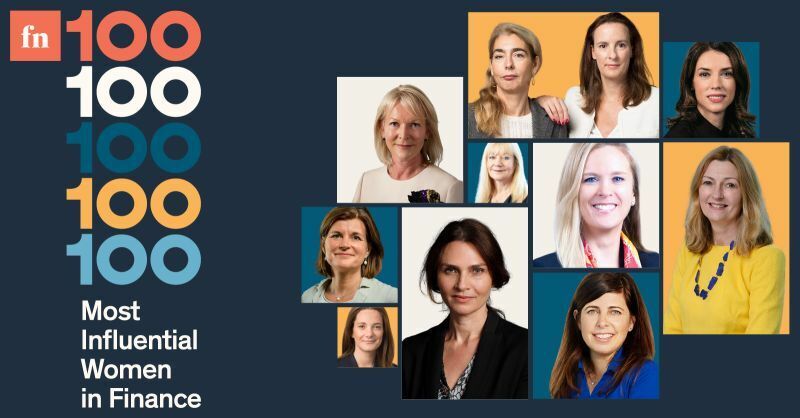Consider activist funds as whistleblowers
L'Agefi
October 31, 2018
Is it because some symbolic French companies are in the hot seat that old-fashioned capitalism reflexes are suddenly resurfacing? In any case, we were very surprised to read in the press recently [L'Agefi Quotidien of 16/10/2018] that an experienced director such as Agnès Touraine, the president of the IFA [French Institute of Directors], took the liberty of likening us, the activist funds, to disrupters whose sole objective would be to "destabilise" companies with the aim of making big profits.
Although activist funds have diverse profiles, it should be remembered that their campaigns are always based on the failure of their targets to comply with the rules of governance, the rights of minority shareholders, or even the law itself. Thus, CIAM has become an activist by necessity and focuses on corporate governance. Because governance rhymes with efficiency. CIAM is a committed shareholder, participates in general meetings and holds its shares for an average of fifteen months, which is well above the average for other shareholders. Moreover, our objective is to increase the share price of our holdings rather than to decrease it.
Trial of intent
So why such a trial of intent against activists? Probably because activists shake up the beautiful - or not so beautiful - sleeping companies that have forgotten the said principles of governance. Sometimes the awakening is brutal.
The reality is also that France is not, far from it, the world champion of governance: the rules are often flouted, especially those concerning independent directors, executive remuneration, voting rights, etc. However, despite Agnès Touraine's concerns, the activist can be a valuable support for independent directors. First of all, he is a courageous shareholder, who rises to the occasion to oppose decisions that he feels are contrary to his interests as a minority shareholder. If the company is successful and makes good choices, the repercussions will be positive for everyone: the company, its employees and its shareholders.
In the case of SFR, CIAM intervened in 2016-2017 to prevent the levying of management fees (between 2% and 3% of the turnover, to remunerate "Altice's know-how") because this seemed to us indecent and contrary to the market practice. An "Altice way" which Altice shareholders were able to taste the effects of shortly afterwards... Let's also remember that in 2017, when Euro Disney was delisted, CIAM obtained from the Walt Disney group that it improved the value of the buyout offer for its European subsidiary by 65%. Euro Disney had been grossly undervalued due to colossal intra-group transfers. All of this did benefit the minority shareholders.
Is it normal that there are massive transfers of money between subsidiaries, which impoverish one to the benefit of the other? Obviously not. Is it healthy for a company to use cascades of holding companies to take on excessive debt at its own risk? We think not. The list of management and governance abuses that 'committed' funds like ours can denounce is very long, especially when the (more or less) independent directors remain silent. The activist's vision often provokes the right debates.
Concerning Covéa's offer for Scor, CIAM has never "demanded that this offer be accepted", contrary to what one may have read here or there. As a 0.77% shareholder (which places us among the 20 largest shareholders in Scor), we asked that it be examined in detail, which - we maintain - was not the case. We also argue that there are other governance issues at Scor, such as the lack of a succession plan for its omnipotent CEO or the lack of true independence of most board members.
This is why, instead of considering activists as "disruptors", the IFA and other market players should rather recognise them as whistleblowers who can correct the abuses and conflicts of interest that are still too present in French companies.
Although activist funds have diverse profiles, it should be remembered that their campaigns are always based on the failure of their targets to comply with the rules of governance, the rights of minority shareholders, or even the law itself. Thus, CIAM has become an activist by necessity and focuses on corporate governance. Because governance rhymes with efficiency. CIAM is a committed shareholder, participates in general meetings and holds its shares for an average of fifteen months, which is well above the average for other shareholders. Moreover, our objective is to increase the share price of our holdings rather than to decrease it.
Trial of intent
So why such a trial of intent against activists? Probably because activists shake up the beautiful - or not so beautiful - sleeping companies that have forgotten the said principles of governance. Sometimes the awakening is brutal.
The reality is also that France is not, far from it, the world champion of governance: the rules are often flouted, especially those concerning independent directors, executive remuneration, voting rights, etc. However, despite Agnès Touraine's concerns, the activist can be a valuable support for independent directors. First of all, he is a courageous shareholder, who rises to the occasion to oppose decisions that he feels are contrary to his interests as a minority shareholder. If the company is successful and makes good choices, the repercussions will be positive for everyone: the company, its employees and its shareholders.
In the case of SFR, CIAM intervened in 2016-2017 to prevent the levying of management fees (between 2% and 3% of the turnover, to remunerate "Altice's know-how") because this seemed to us indecent and contrary to the market practice. An "Altice way" which Altice shareholders were able to taste the effects of shortly afterwards... Let's also remember that in 2017, when Euro Disney was delisted, CIAM obtained from the Walt Disney group that it improved the value of the buyout offer for its European subsidiary by 65%. Euro Disney had been grossly undervalued due to colossal intra-group transfers. All of this did benefit the minority shareholders.
Is it normal that there are massive transfers of money between subsidiaries, which impoverish one to the benefit of the other? Obviously not. Is it healthy for a company to use cascades of holding companies to take on excessive debt at its own risk? We think not. The list of management and governance abuses that 'committed' funds like ours can denounce is very long, especially when the (more or less) independent directors remain silent. The activist's vision often provokes the right debates.
Concerning Covéa's offer for Scor, CIAM has never "demanded that this offer be accepted", contrary to what one may have read here or there. As a 0.77% shareholder (which places us among the 20 largest shareholders in Scor), we asked that it be examined in detail, which - we maintain - was not the case. We also argue that there are other governance issues at Scor, such as the lack of a succession plan for its omnipotent CEO or the lack of true independence of most board members.
This is why, instead of considering activists as "disruptors", the IFA and other market players should rather recognise them as whistleblowers who can correct the abuses and conflicts of interest that are still too present in French companies.
Catherine Berjal and Anne-Sophie d’Andlau, cofounders of CIAM








